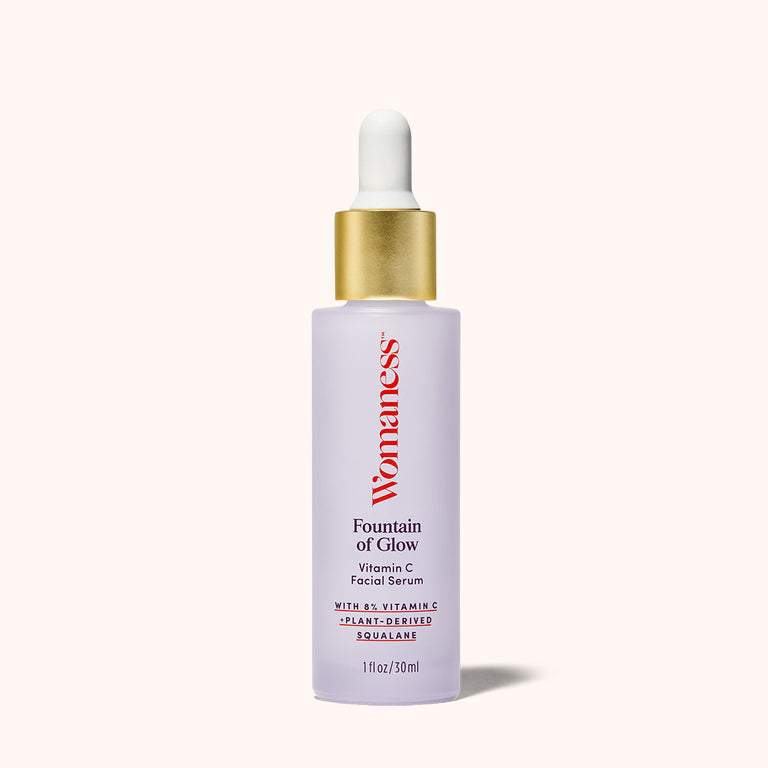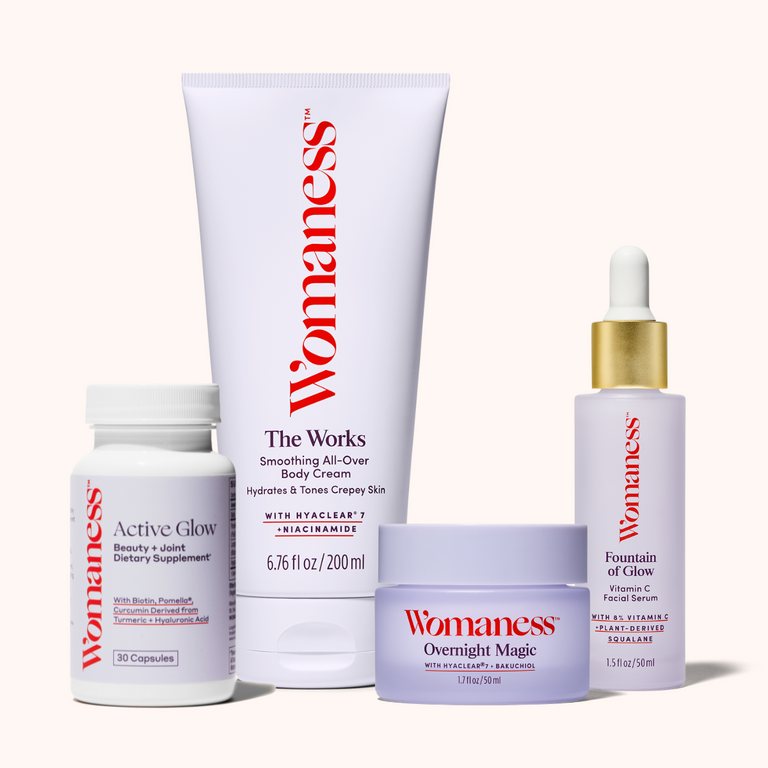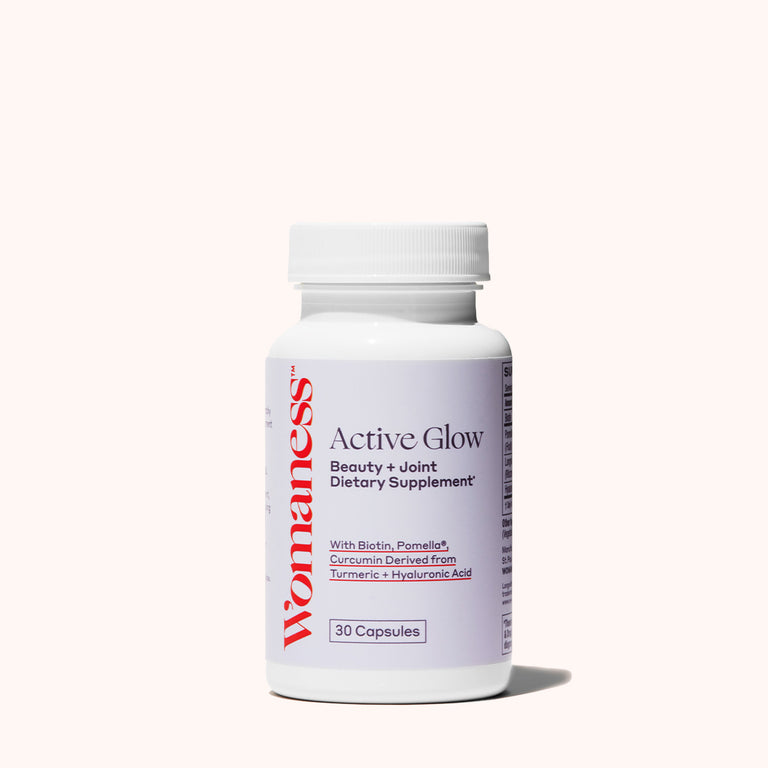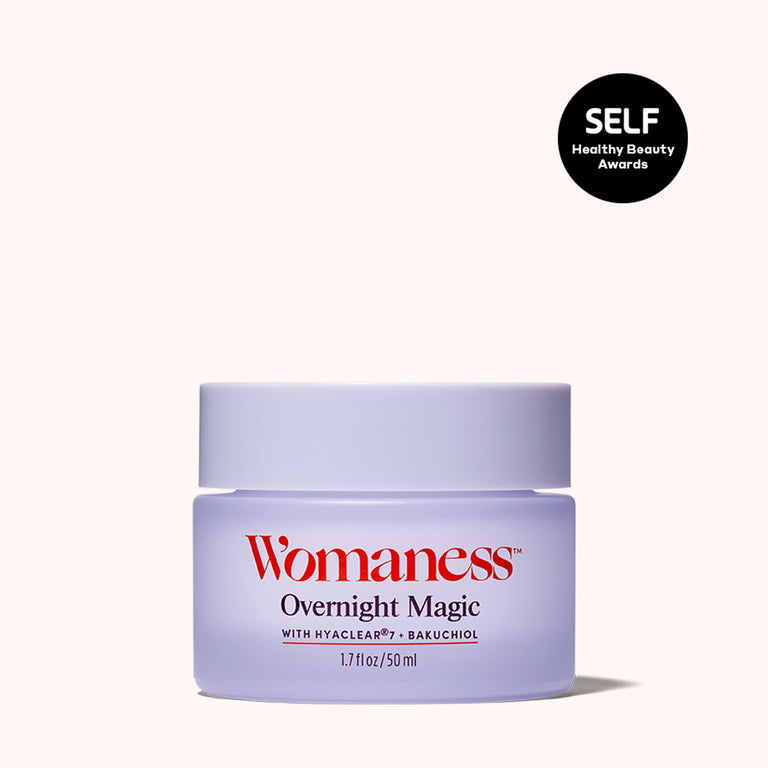By Womaness Editors 3-Minute Read
Growing up, you were told to get plenty of vitamin C to stay healthy, strong, and to ward off colds. As an older, wiser woman, there’s now another reason to load up: a revitalized complexion. Turns out, this essential vitamin is a miracle worker when it comes to keeping your skin hydrated, bright, and deeply nourished. It's also a fabulous defense against the dull texture and appearance brought on by changing hormones. Here, we spill the tea on C.
“A serum rich in vitamin C gives your skin’s natural regeneration process a boost, repairing damaged cells.”
Why You Need Vitamin C
Vitamin C is an essential vitamin. This simply means that your body can’t produce it. It’s water soluble and known for its starring role in many fruits and vegetables like oranges, strawberries, kiwi fruit, peppers, broccoli, kale, and spinach. And it’s true about vitamin C helping to keep colds away: It’s known as a powerful antioxidant that strengthens the body’s natural defense systems by protecting cells from free radicals—essentially harmful molecules that, when accumulated in the body, can lead to chronic diseases like heart disease and high blood pressure.
C & Your Complexion
So what does all of this have to do with your face? Just as eating antioxidant-rich foods can help your body fight off free radicals, topical antioxidants will do the same for your skin by offsetting daily external aggressors like UV damage and pollution. “I’m a big proponent of vitamin C,” Dr. Somi Javaid, founder and Chief Medical Officer of HerMD, tells us. “It prevents a lot of damage during the day, especially with thin skin, which is more prone to damage.”
But vitamin C doesn’t just stop there when it comes to your complexion. It deeply hydrates, brightens, and improves the texture of menopausal skin. In addition, it works to produce natural collagen—the stuff that strengthens your skin and gives it elasticity, which is something you lose as you age. Bonus: Vitamin C can also help reduce the appearance of any stubborn dark spots that appear in this phase of life
And the result? A smoother, more even complexion that practically glows.
VITAMIN C BENEFITS
-
Hydrates
-
Brightens
-
Evens out skin tone
-
Boosts collagen production
-
Reduces hyperpigmentation & redness
-
Good for almost every skin type
“I’m a big proponent of vitamin C, as it prevents a lot of damage during the day, especially with thin skin." - Dr. Somi Javaid of HerMD
How to Get That Glow
Because a serum rich in vitamin C can give your skin’s natural regeneration process a boost and repair damaged cells, we created Fountain of Glow Vitamin C Facial Serum. It’s an ultra-hydrating, preservative-free facial serum that gives your skin the radiance it truly deserves with a super-powered antioxidant formula of 8 percent vitamin C in a naturally derived squalane oil solution. (Squalane is a plant-derived, weightless emollient that locks in moisture and reduces the appearance of fine lines and wrinkles. It’s also a fellow antioxidant, lending extra protection against free radical and cellular damage.)
The luxe serum offers an immediate glow without being greasy—plus we've selected a stable, oil-soluble type of vitamin C for high potency and low irritation. It offers moisturization with a soft, velvety finish, plus an uplifting aromatherapeutic hint of bergamot and palmarosa. If you’ve never tried a serum before, there’s nothing easier to add to your regimen (just add it after you’ve cleansed and toned your face; it’s great for both morning and night).
More Health & Wellness
Top 6 Ingredients for Your Daily Menopause Routine
Ingredient Spotlight: Hyaluronic Acid
7 Ways Niacinamide Multitasks for Menopausal Skin








